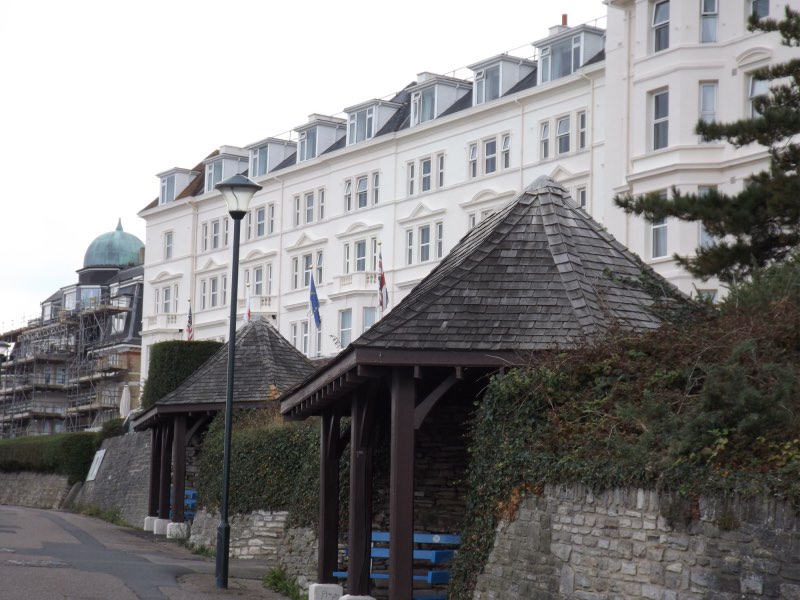
Two days after marking the 75th anniversary of VE Day on Friday there is the 80th anniversary of Winston Churchill becoming Prime Minister on Sunday.
“Next to Downing Street itself, the busiest political centre in the world in those days was the cliff-top hotel in Bournemouth,” said political journalist Trevor Evans when he recalled the appointment of Winston Churchill as Prime Minister on 10 May 1940.
Bournemouth played a crucial roles in Churchill’s entry into politics and his eventual premiership.
As an 18 year old staying with his aunt Lady Wimborne at Branksome Dene he jumped from the Branksome Dene Chine bridge at the bottom of the garden and failed to slide down a pine tree. His companions rushed back to the house to report that Winston had “jumped over the bridge and won’t speak to us”.
Young Winston remained unconscious for three days whilst doctors called from London diagnosed a ruptured kidney and a broken shoulder. It was during his convalescence that young Churchill met leading statesmen, spent time in the House of Commons’ gallery and resolved to enter Parliament.
Winston was impressed by the respect that political opponents showed for each other and it was the respect of his opponents meeting in Bournemouth which gave him the premiership.
Churchill had been the rebel with dire warnings of the German threat during the Thirties. By May 1940 Britain was seven months into the Second World War and Norway had just been invaded with disastrous consequences for British forces.
On Wednesday 8 May, with the Commons in the middle of a two day debate on Norway, the national press began to express concern over the War leadership. The Labour Opposition decided to force a division in which many Conservatives abstained leading to suggestions that the Prime Minister Neville Chamberlain should resign.
On Friday 10 May, with the overnight news of the German invasion of Luxembourg, Belgium and Holland, the War Cabinet met at 8am and again at 11.30am. Meanwhile those due to make the most important decision were heading for Waterloo Station and the 11.43am Bournemouth train.
The Labour Party Conference had long been scheduled to open at The Pavilion in Bournemouth on the following Monday and as usual the National Executive Committee was meeting in advance to settle final arrangements.
Labour Leader Clement Attlee went ahead with this out of London meeting in the belief that it would be easier to dislodge Chamberlain from Bournemouth than on the Prime Minister’s home ground where there would be appeals for unity in the national interest.
London County Council Leader Herbert Morrison, reluctantly staying in London in case it was bombed, saw the NEC members into their third class seats.
At Bournemouth reporters were told that a decision on joining the government would be known about 6pm. In fact it was made much quicker. The 25 strong meeting was convened in the basement of The Highcliff Hotel at 3.30pm and began discussions within ten minutes.
Soon news came through that Canterbury was being bombed. Although this report proved false -the bombs fell in the Kent countryside- they were the first bombs of the conflict. With minds concentrated, a statement was soon agreed: “The National Executive of the Labour Party have unanimously decided to take their share of responsibility as a full partner in a new government, under a new Prime Minister, which would command the confidence of the nation.”
Hugh Dalton had suggested the insertion of the phrase “under a new Prime Minister” to make quite clear their hostility to the Chamberlain administration.
At once Attlee prepared to go back to London and negotiate with the government. It was almost 5pm when Attlee, leaving the Highcliff to catch the 5.15pm train, was called back from the front door to take a call from Downing Street. Assistant Private Secretary Jock Colville asked if there was any reply to the questions Attlee had promised to put to the NEC: ‘Are you prepared to serve under Chamberlain?’ and ‘Are you prepared to serve under another?’.
Attlee replied “No and Yes” and dictated the NEC statement.
Within the hour Chamberlain was at Buckingham Palace. When he left at 6.30pm there was only a five minute gap before Churchill arrived. “I suppose you don’t know why I have sent for you” said the King. “I simply couldn’t imagine why” replied Churchill who then heard George VI say: “I want to ask you to form a government”.